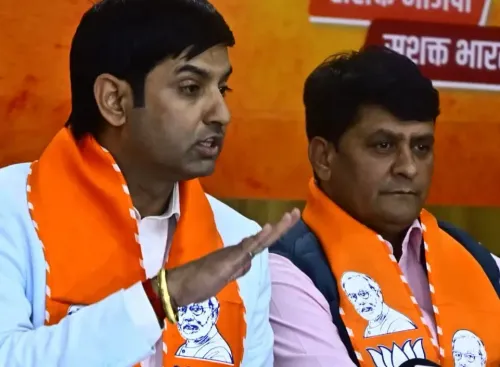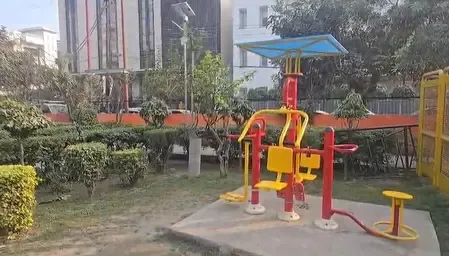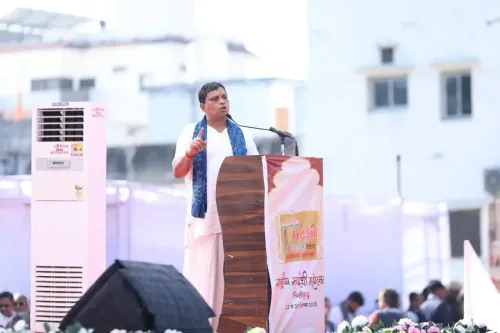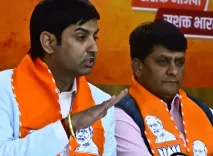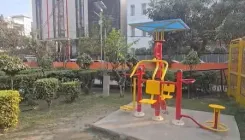Is Anyone Above the Law? Jharkhand HC Criticizes Government for Inaction on Gangster Aman Sahu’s Death
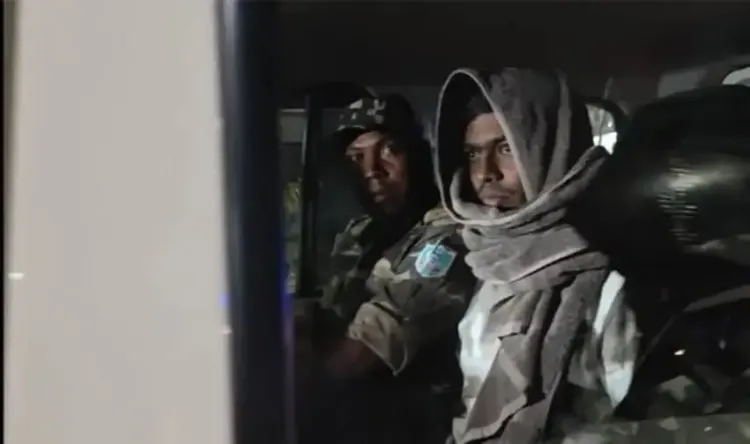
Synopsis
Key Takeaways
- The Jharkhand High Court demands accountability from the state government.
- The court emphasizes that no one is above the law, including police officials.
- There are serious allegations regarding the circumstances of gangster Aman Sahu's death.
- The importance of preserving evidence is highlighted by the petitioner's counsel.
- A comprehensive investigation by the CBI is being sought for transparency.
Ranchi, July 30 (NationPress) The Jharkhand High Court on Wednesday conveyed its significant dissatisfaction regarding the state government's inaction in registering an FIR following a complaint from Kiran Devi, the mother of gangster Aman Sahu, who met his end in a police encounter earlier this year.
"No one is above the law -- not even the Director General of Police," stated a division bench led by Chief Justice Tarlok Singh Chauhan while addressing a petition that called for a CBI investigation into the supposed encounter.
The bench inquired why an FIR had not been filed despite Kiran Devi's online complaint.
The court has requested a comprehensive response from the state government, demanding an explanation for the delay.
During proceedings, the petitioner’s attorney accused the state of intentionally delaying the case to manipulate or eliminate critical evidence. They emphasized that essential electronic records like call detail records (CDRs) from mobile providers are only retained for a limited duration, and procrastination could result in the loss of crucial data.
Kiran Devi’s petition asserts that her son was killed in a fabricated encounter on March 11 in Palamu. She claims that while Aman Sahu was being transported from Raipur Central Jail to the NIA Court in Ranchi, he was allegedly murdered mid-transport as part of a conspiracy.
The petition also points out significant security lapses. Aman Sahu was previously transferred from Chaibasa Jail to Raipur with a 75-member police escort, yet only a 12-member ATS team was tasked with bringing him back to Ranchi.
Kiran Devi expressed that she had previously worried for her son’s safety and had voiced concerns regarding a potential staged killing by the police.
The petitioner has included multiple authorities in the case, such as the Union Home Ministry, the CBI Director, the Jharkhand Home Secretary, the state Director General of Police, the SSP Ranchi, and Anti-Terrorism Squad (ATS) officials, requesting a thorough and unbiased investigation by the CBI.
The High Court has also instructed the state to respond to an intervention application filed by the petitioner and has mandated the government to submit a detailed affidavit before the next hearing.
Gangster Aman Sahu, implicated in over 150 offenses across various states, including Jharkhand and Chhattisgarh, was killed in a police encounter on March 11.
He had been incarcerated in Raipur jail and was being transported to Jharkhand for questioning related to certain criminal activities when, as per police accounts, his gang allegedly ambushed the police convoy near Andhari Dhoda in the Chainpur police station area of Palamu using an explosive device. During the ambush, the police vehicle lost control.
According to the police, Sahu capitalized on the disorder, seized a weapon from a police officer, and attempted to flee while firing shots. In response, the police fatally shot him, resulting in injuries to a police officer during the exchange of gunfire.


